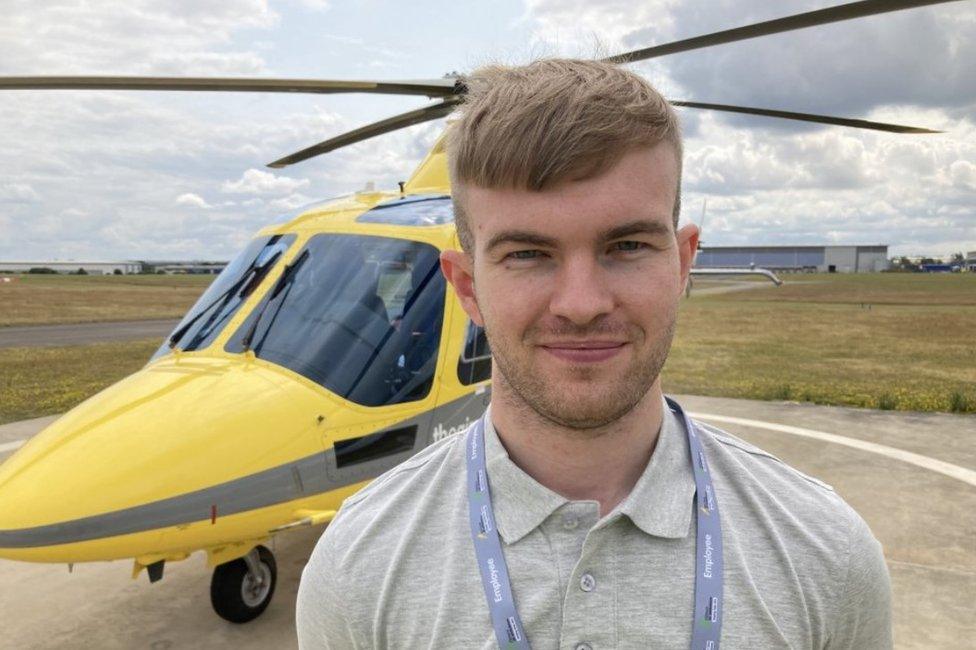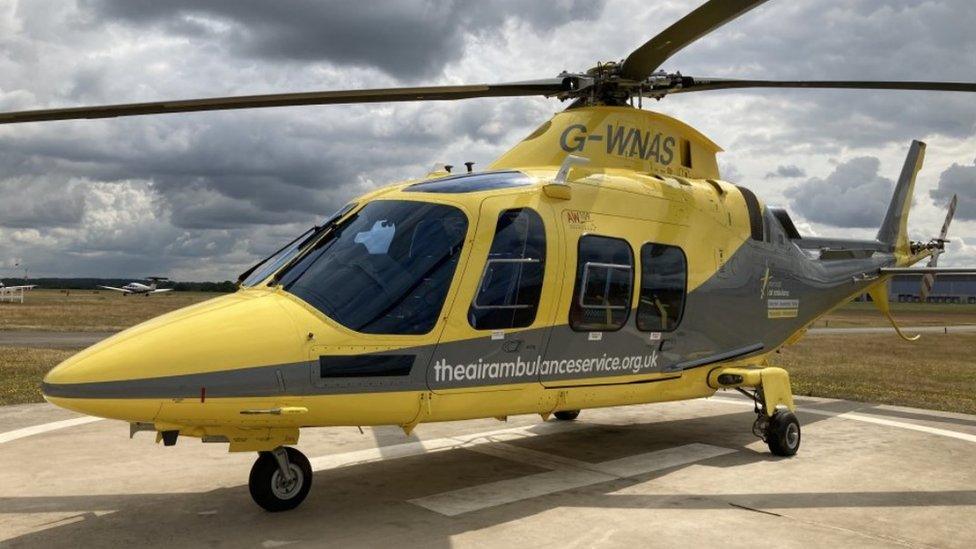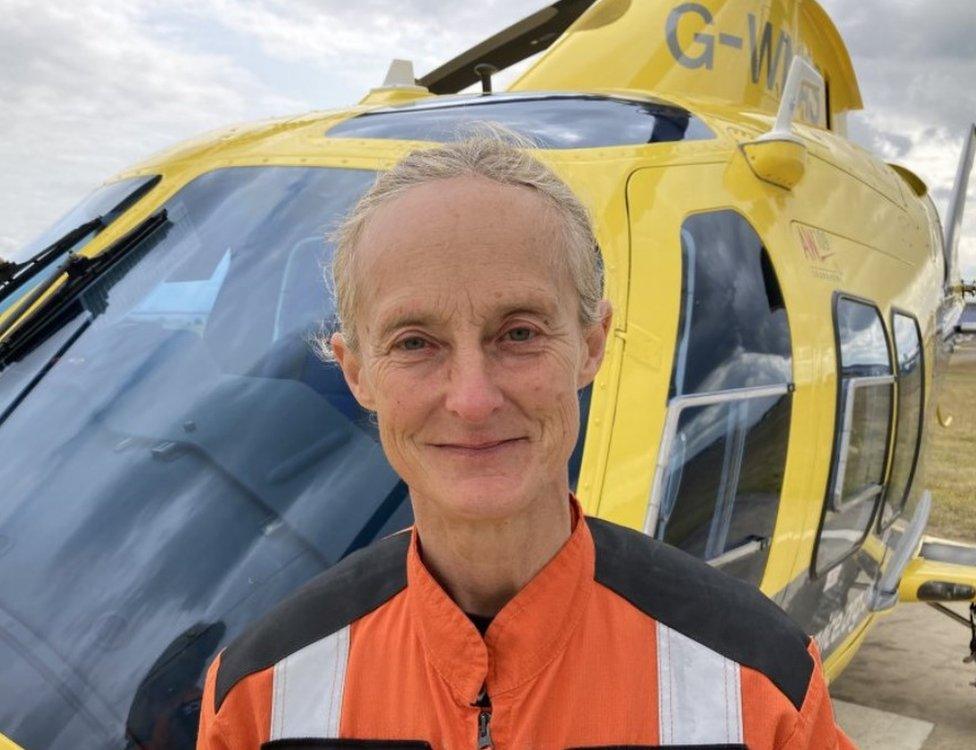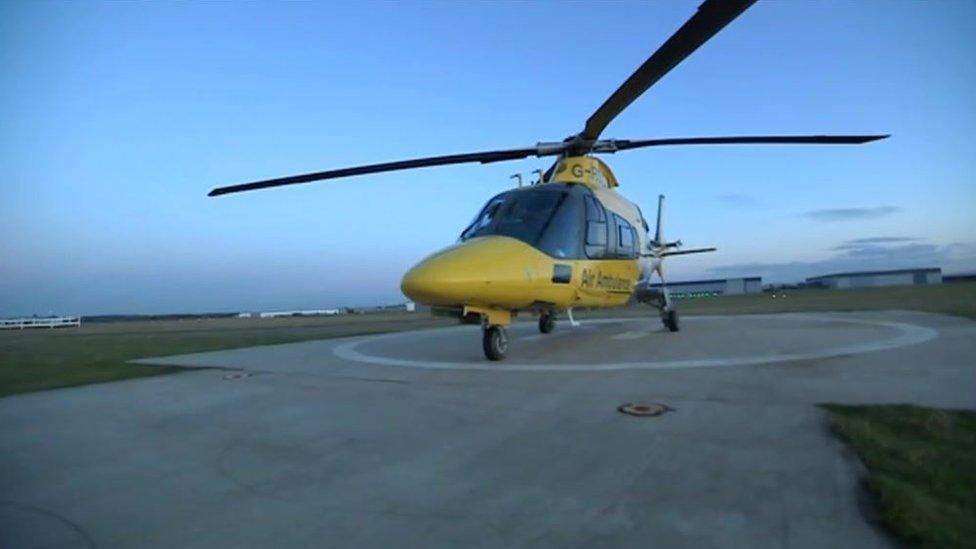Air Ambulance Service reaches 50,000th mission
- Published

Volunteer Jake Elliott said he was "incredibly thankful for all the work that they do"
An air ambulance charity has reached its 50,000th mission, 20 years after the service was formed.
The Air Ambulance Service, covering Warwickshire, Northamptonshire, Derbyshire, Leicestershire and Rutland, said a mission costs £1,700 on average.
The charity said it was "incredibly proud" to achieve the milestone and needed the public's continued support.
One volunteer, Jake Elliott, said the service saved his life, after a road collision in 2019 when he was 18.
He explained within about "13 minutes from the first initial phone call I was already in hospital".
Mr Elliott added: "There was an accident on the motorway that day, so where I was, I would've had to have gone via the motorway, but it would have been about a 40-minute journey normally.
"Every second counts and if it wasn't for the air ambulance, I either wouldn't be here today or I'd be in a much different position."
He has gone on to take on tasks including getting organisations involved with fundraising, research for fundraising and public speaking for the service.

The Air Ambulance Service was set up to cover Warwickshire and Northamptonshire in 2003
Warwickshire and Northamptonshire Air Ambulance was set up in 2003, before it took on the other areas five years later.
Each crew attends an average of five missions a day and one pilot, Gary Spender, said he cruises at about 150 knots - 173mph (278km/h).
A software developer by trade, who has flown helicopters for 27 years, Mr Spender said the service had a "range of about 240 miles", but there would be "no fuel left when we got to the 240-mile point".
Asked if he thought particular sites were perfect for landing, the pilot replied: "Big, flat, green things without people on."
He also said: "The ground might be muddy, there's all kind of reasons why we can't go to things that might look feasible on a map or on a Google Earth image.
"When we come in... overhead, that's when we make the final assessment."

Philippa Gibbs said the service supported ambulance crews at a scene and "might bring some additional skills"
Base manager at Coventry Philippa Gibbs, who is a critical care paramedic, said her role was navigation on the journey there, before moving to her medical commitments.
Speaking about the job, she stated: "We're trying to deal with the stress, we have lots of systems in place, it's what we do.
"It can be also very rewarding, depending on the patient."

Follow BBC West Midlands on Facebook, external, Twitter, external and Instagram, external. Send your story ideas to: newsonline.westmidlands@bbc.co.uk, external
Related topics
- Published1 February 2018

- Published13 August 2015
